UNICEF’s Peta Barns recounts terror after earthquake hit Syria and Turkey
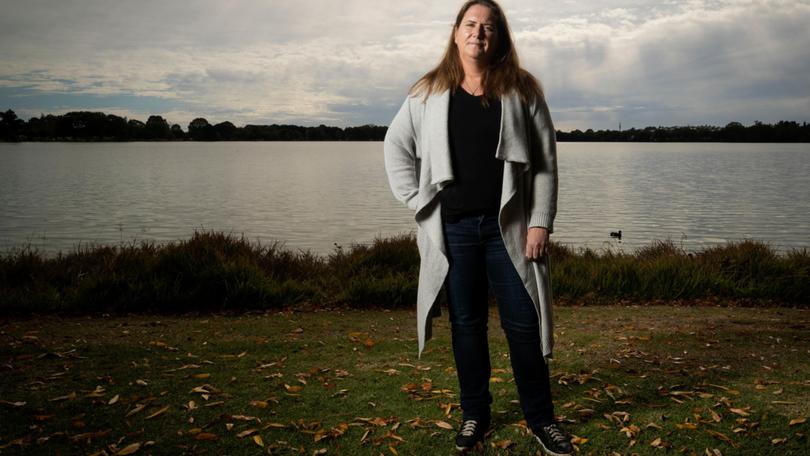
As the floor trembled beneath her feet, the walls around her shook and her entire apartment began to rattle, glass smashing everywhere, Peta could not have been more terrified.
But she knew she had no time to be afraid and had to spring into action.
Originally from Perth, she had moved to Turkey for a more tranquil life after working in war-torn countries for years, but on February 6 that peace was shattered.
Sign up to The Nightly's newsletters.
Get the first look at the digital newspaper, curated daily stories and breaking headlines delivered to your inbox.
By continuing you agree to our Terms and Privacy Policy.Ms Barns — who was working for UNICEF assisting vulnerable children in northern Syria impacted by conflict — woke to her whole apartment being rocked as a mighty 7.8 magnitude earthquake hit Gaziantep.
In the first 90 seconds of chaos she was convinced she would not survive.
“I’ve been in contexts where I’ve had to be thrown into bunkers because we’re getting bombed or shot at in Somalia and other places, but this was just a whole new level of fear because in those high-security contexts you sort of expect something to happen,” she said.
“I didn’t have those emotional resilience walls up that I have in other contexts.
“I’ve been trained on how to put on bulletproof vests and how to get out of hostage situations. None of our training is, if there’s an earthquake what do you do?”
So the ever-resourceful Ms Barns simply got changed, grabbed her passport and some food, and headed to the office.

Around 12 hours later, another earthquake of 7.2 magnitude hit, followed by thousands of aftershocks, devastating large swathes of Turkey and Syria. More than 59,000 people died with around 122,000 injured.
Her job as a UNICEF emergency specialist means she goes to some of the world’s toughest places to help disadvantaged children, but before the earthquakes she had never been there at the outset of a disaster.
Ms Barns was among the millions to be affected, sleeping in her office for weeks while waiting for her apartment to be assessed for damage.
“I found myself going from doing an emergency response that was conflict driven to an emergency response for an earthquake,” she said.
“I definitely have more empathy now and understanding of what people go through than I probably did before.
“Even though I’ve been doing this job for 12 years, I don’t think I really understood what it’s like to go through that.”
Walking around Lake Monger near where she grew up in Wembley, Ms Barns said she never imagined herself in a career that frequently puts her life in danger.
When she finished Year 12 in 1992 she went to university like all of her friends and studied a commerce degree. She wa management consultant for 12 years but said she did not feel like it quite fitted, until she went to a talk on humanitarian logistics.
“I just wanted to see what it was about,” Ms Barns said. “I went to the talk and it was like a light came on.”
It took two more years of training but she eventually quit her cushy job and four days later she found herself in the middle of South Sudan.
“Since I’ve pivoted to this it just feels like where I belong,” she said.
The aftermath of the earthquake exacerbated the problems facing Syria, an already devastated country that has been dealing with 12 years of conflict, an economic crisis, and a cholera outbreak.
About 6000 people were killed and more than 12,000 injured there in the earthquakes and aftershocks.
In the provinces of Aleppo, Latakia, Tartous, Hama, Homs, and Idlib more than 500 health facilities were destroyed and almost 300 more were severely damaged. Close to 1000 schools were also wrecked, and severe damage to water and sewage infrastructure left drinking water systems at risk of contamination.
The natural disaster could not have hit a more vulnerable population, with two of the most affected provinces, Aleppo and Idlib, already having some of the greatest levels of humanitarian need in Syria, which consistently ranks among the least liveable countries in the world.
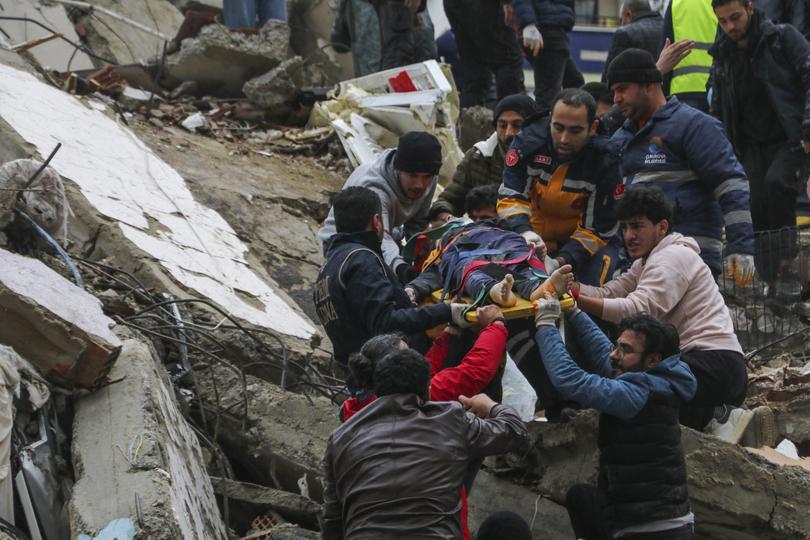
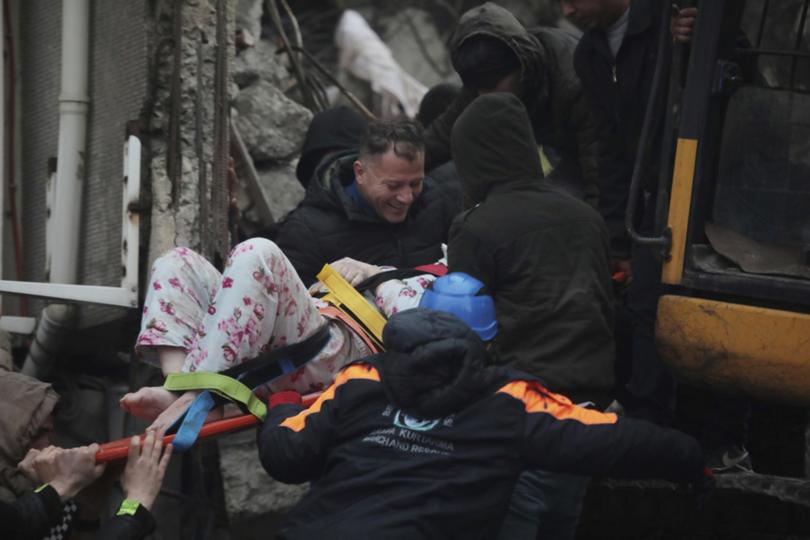
But in the aftermath of the quakes there was one lifeline — the Syrian Government granted access to UNICEF and other humanitarian aid to enter northern Syria for the first time in a decade.
“When I got into Syria, a week later, it was just heartbreaking to see a population that had been getting so hammered by conflict, a cholera outbreak that started six months before. It just doesn’t stop,” Ms Barns said.
“You’d see buildings and didn’t know whether it was damage from war or earthquakes. Syrians are incredibly resilient, but at some point you just have to say this is not right now, how many more hits can people take?”
The renewed access to the country opened up more opportunities for UNICEF to help the hundreds of thousands of children already traumatised by war and now further afflicted by the earthquakes.
One example of being on the ground that sticks out in Ms Barns’ mind was being able to get children back to school.
“We talked to the parents and they’re like: ‘Well we don’t want to send our kids back to school because there might be another earthquake and the building could fall on them’,” she said.
“We were able to work with communities to say we’ve structurally checked the schools and they’re safe. Please bring the kids back to school because we know the number one thing to help children recover from trauma is education.”
UNICEF and its partners have helped more than 130,000 children to access education in Syria.
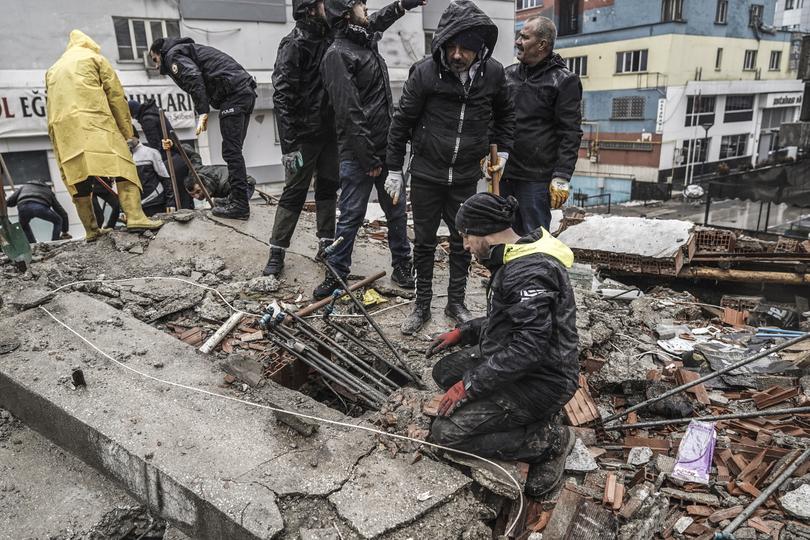
It has been over four months since the first earthquake hit, with assistance moving into recovery efforts.
“There are buds of hope, but recoveries for earthquakes are long,” Ms Barns said. “You do a very quick lifesaving response and then it’s six to 12 months if the funding is there.”
UNICEF is now concentrating on restructuring buildings to make them earthquake resilient, undertaking cholera vaccination campaigns and fixing the water systems.
The organisation is providing water, sanitation, and hygiene services to about 765,000 people across Syria, however, this is not a permanent solution. Repairs to the water and sewage networks, treatment and pumping facilities are urgent as the region approaches summer.
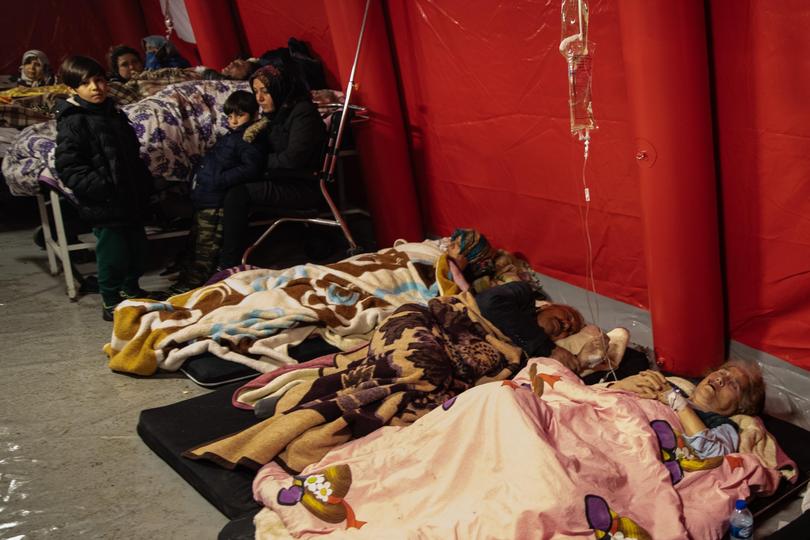
An oral cholera vaccine campaign in the region has also reached almost 1.7 million people and a second phase is under way targeting an additional 1.1 million people in earthquake-devastated areas.
Ms Barns said the vaccinations gave the team time to repair the water and sewage networks.
“You can vaccinate people, which buys you time to fix water systems so that the water is clean,” she said. “When the vaccinations wear off then they can start having access to clean water again.”
The UNICEF north-west Syria team has so far undertaken 29 missions inside northern Aleppo and Idlib, sending 189 trucks of lifesaving supplies into the region.
But this could all end on July 10 with a UN Security Council resolution that guarantees humanitarian aid access expiring. Without that the organisations are at the mercy of the Syrian Government to let them in.
A handshake deal between the UN and the Syrian Government over entry is also set to expire on August 13, which could see an end to a much-needed lifeline for the devastated country.
“At the moment we have a bit of a handshake deal that lets us in, but before that we could only send supplies and that was about it,” Ms Barns said.
It was heartbreaking for me. It’s very rare I break in this job, you sort of suck it up and deal with your emotions later.
She said UNICEF is continuing to advocate for access to northern Syria to be able to provide assistance.
Her all-encompassing job can take its toll, but Ms Barns said she always finds a glimmer of hope that keeps her going.
At a UNICEF stabilisation centre for nutrition treatment, a pair of twins were given little hope of surviving as they had been malnourished for too long.
“It was heartbreaking for me. It’s very rare I break in this job, you sort of suck it up and deal with your emotions later,” Ms Barns said.
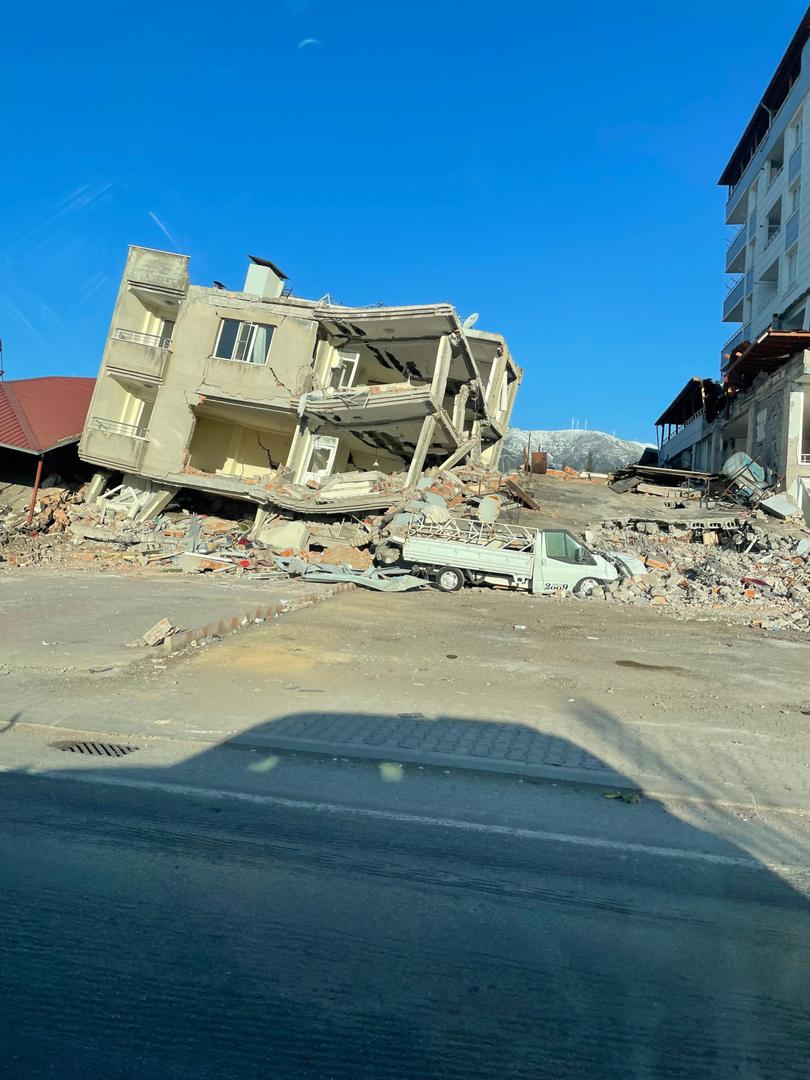
But just over two weeks ago she was in that same hospital and was able to ask how the twins were, fully expecting to hear the worst.
“They had been released and that for me was the power of this job I get to do because if these twins went without interventions there was nothing that could’ve been done,” Ms Barns said.
“There’s just this happiness — I think we all needed that story. There’s a lot of tragedy, but sometimes you just need that one piece of good news that keeps pushing you because this job is all-encompassing.”
Australians who want to help support the humanitarian efforts in Syria, can do so at unicef.org.au/support-unicef-australia
